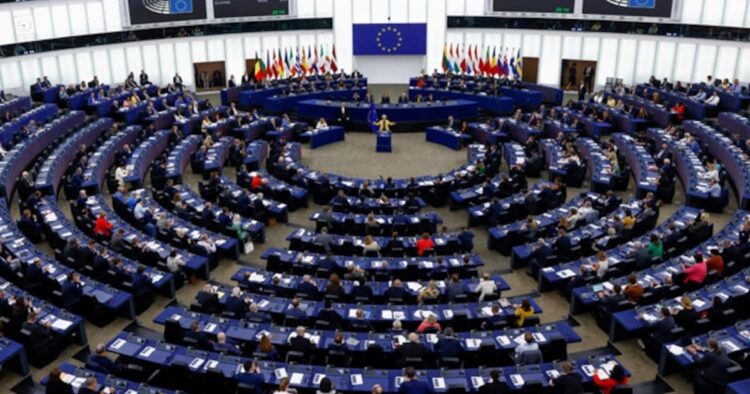European Union countries and lawmakers have reached a significant agreement on Wednesday regarding an overhaul of the bloc’s laws on handling asylum-seekers and migrants. The reform addresses various aspects, including faster vetting of irregular arrivals, the establishment of border detention centers, accelerated deportation for rejected asylum applicants, and a solidarity mechanism to relieve southern countries facing significant inflows.
The negotiations, chaired by Spain during its EU presidency, resulted in a political agreement on the five components of the EU’s new Pact on Migration and Asylum. This marks a crucial step forward, as stated by European Commission Vice President Margaritis Schinas, who highlighted the long road to reaching this consensus. Commission Chief Ursula von der Leyen emphasized the common European challenge of migration and expressed confidence that the decision would enable better management collectively.
While the accord still awaits formal approval by the European Council and the European Parliament, representing the 27 EU member countries, negotiators aimed to secure a workable deal before the current European Parliament’s term concludes in June 2024.
In recent years, the migration issue has gained a heightened political edge in Europe, with the rise of nationalist anti-immigrant parties in various EU countries, including Italy, Sweden, and the Netherlands.
Key Points of the Overhaul
The overhaul, based on a commission proposal from three years ago, maintains the existing principle where the first EU country an asylum-seeker enters is responsible for their case. However, a compulsory solidarity mechanism will be established to assist countries facing a high number of arrivals, such as Italy, Greece, and Malta. This mechanism may involve migrant relocations to other EU countries or financial/material contributions from countries refusing to accept migrants.
The reform aims for accelerated filtering and vetting of asylum-seekers, enabling the quick return of those deemed ineligible to their home country or country of transit. This process necessitates the establishment of border detention centers, particularly for irregular migrants from countries with a high rejection rate of asylum requests.
Guarantees have been secured to ensure adequate conditions for families with young children in detention centers, with monitoring in place to uphold migrants’ rights and provide free legal advice.
A notable element is the proposed “surge response,” allowing adjustments to protections for asylum-seekers during times of significant inflows. This provision addresses situations similar to the 2015-2016 period when over two million asylum-seekers arrived in the EU, many from war-torn Syria.
The EU is currently witnessing a rise in irregular migrant arrivals and asylum requests. Frontex, the EU border agency, recorded over 355,000 irregular border crossings in the first 11 months of the year, marking a 17% increase. The EU Agency for Asylum estimates that asylum-seekers this year could surpass one million.

















Comments